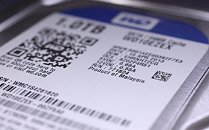Wednesday, July 18th 2018

Western Digital Shuts Down Hard Drive Factory - Just not Enough Demand
With the advent of solid-state storage in pretty much every device you can think of, demand for mechanical HDDs has gone down, because users prefer fast and compact SSD storage over the mechanical dinosaurs. HDD manufacturers have been trying to stop the inevitable by coming out with new technologies to increase capacity - faster than SSD pricing can drop, but it seems they can't prevent the inevitable.
Now The Register UK reports that Western Digital will close its HDD factory near Kuala Lumpur, Malaysia. This is one of the company's first factories, operating since 1973. After the shutdown of the Malaysia plant, WD will be left with only two factories in Thailand, and is now trying to gain more share in the SSD market.WD provided the following comment:
Source:
TheRegister
Now The Register UK reports that Western Digital will close its HDD factory near Kuala Lumpur, Malaysia. This is one of the company's first factories, operating since 1973. After the shutdown of the Malaysia plant, WD will be left with only two factories in Thailand, and is now trying to gain more share in the SSD market.WD provided the following comment:
In response to declining long-term demand for client HDDs, Western Digital has taken steps to rationalize its HDD manufacturing operations globally. The company will decommission its HDD manufacturing facility in Petaling Jaya, Selangor, by the end of calendar 2019. This transition will be executed in close collaboration with employees, customers, supply partners and other critical stakeholders.
The data technology industry is undergoing substantial change. This market transformation is driving increased adoption of SSDs and NAND flash in traditional HDD applications. The change has contributed to growth in SSD/NAND flash and declining long-term demand for client HDDs. Consequently, Western Digital plans to expand SSD manufacturing in Penang. The company is in the final stages of commissioning its second SSD facility in Penang, which will go into production in the coming months.

61 Comments on Western Digital Shuts Down Hard Drive Factory - Just not Enough Demand
256GB Samsung 840 Pro SATA
Workstation PC
256GB mSATA SSD
128GB External mSATA to USB3 Drive
Notebook
2x 256GB proprietary SSD (ASUS Zenbook 500)
NAS
Lots of Harddrives! no SSD
I just want one giant HDD which I can use to store all my media and never worry about it at a reasonable price.
Get that capacity to stupid sizes like 20TB and it becomes the ultimate media solution with a small SSD for the OS.
I still have a need for HDDs.. just because I like massive space (using Seagate now though). I still cache the drives with SSD though (which is why I became a sort of Optane fanboy). There's a place for this niche. At least for secondary drives.
money.cnn.com/2018/01/05/investing/toshiba-nuclear-westinghouse-sold/index.html
The NAND part of Toshiba was the only part of Toshiba's business that was doing well.
Even NAS and other traditionally HDD-centric enterprise applications are rapidly moving to flash storage instead.
Most every provider of NAS-storage devices has embraced this changeover and is pushing the bulk of their resources over to flash storage.
This is currently happening with the likes of Sony, Panasonic, Toshiba, Hitachi, Sharp, etc, etc... Slowly but surely they are going the way of the Dodo, taking the whole country down with them...
All the machines I own are pure SSD.
Every machine I have fixed for people this year has had a SSD put in it.
Unless you need metric tons of storage, or cold storage, HDDs are on their way out. The sheer speed of flash makes up for the excessive cost of hgiher end solutions, and smaller SSDs cost the same as HDDs now.
Tape has an advantage because it isn't a mechanical thing, the mechanical parts are in the drive. HDDs are more likely to suffer mechanical failures. In both case, the data is magnetic so barring exposure to a strong magnet, the data will be retained so long as the metal is stable (a very long time).
SSDs are billions of switches. Which ever switches fail, that data is gone.
Think about the vast majority of systems out there: thin clients and laptops. These devices are best served by an SSD because none of the data they contain is very important. It's the mainframes, databases, and servers that have racks of redundant hard drives. I suspect they're selling a lot of 2+ TB hard drives to make those systems but the <500 GB drives for thin clients has shrunk to non-existent. Just 5 years ago, virtually every system sold had <500 GB hard drives in them. Now, the base manufacturing costs (the head, the body, the circuitry, and at least one platter) hardly justify them over a SSD. You can't even buy a new 120 GB hard drive anymore and 120 GB SSDs are going for <$50. That's where the demand is.
I don't even use SSD, i use sata hard drives, internal and external. probably always will for a long time, i don't think my desktop even supports SSD anyway.